 W
WEugen Ritter von Böhm-Bawerk was an Austrian economist who made important contributions to the development of the Austrian School of Economics and neoclassical economics. He served intermittently as the Austrian Minister of Finance between 1895 and 1904. He also wrote a series of extensive critiques of Marxism.
 W
WMiroslav Bedřich Böhnel was a Czech writer. His work was part of the literature event in the art competition at the 1932 Summer Olympics.
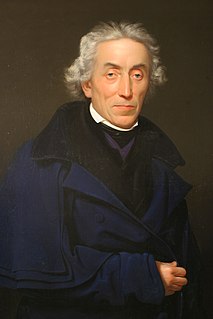 W
WJosef Dobrovský was a Czech philologist and historian, one of the most important figures of the Czech National Revival along with Josef Jungmann.
 W
WFrantišek Emmert is author of books about modern European and Czech history.
 W
WArnošt Goldflam is a Czech playwright, writer, director, screenwriter, and actor. He appeared in more than thirty films between 1986 and 2011.
 W
WTheodor Gomperz, Austrian philosopher and classical scholar, was born at Brno (Brünn).
 W
WFritz Grünbaum was an Austrian Jewish cabaret artist, operetta and pop song writer, director, actor and master of ceremonies.
 W
WFrantišek Halas was one of the most significant Czech lyric poets of the 20th century, an essayist, and a translator.
 W
WZoe Hauptová was a Czech slavicist, palaeologist, editor, translator, lecturer and editor of the Old Church Slavonic Dictionary.
 W
WLaura Henschel-Rosenfeld, a respected educator between the World Wars, was the fiancée of Maurycy Gottlieb, perhaps the most famous Jewish painter of his era, until she rejected him for another suitor. The rejection, according to some theories, directly led to the death of this painter in 1879 at the age of 23, 18 months after her rejection. Henschel-Rosenfeld herself was murdered by the Nazis 65 years later at Westerwald. Henschel-Rosenfeld appears in some of Gottlieb's most famous paintings.
 W
WBohumil Hrabal was a Czech writer, often named among the best Czech writers of the 20th century.
 W
WLeopold Janauschek was an Austrian Cistercian historian.
 W
WAlois Isidor Jeitteles was an Austrian doctor, journalist and writer, best known for Ludwig van Beethoven's setting of his poem sequence, An die ferne Geliebte.
 W
WHellmuth Karasek was a German journalist, literary critic, novelist and the author of many books on literature and film. He was one of Germany's best-known feuilletonists.
 W
WJiří Kratochvil is a Czech writer.
 W
WLudvík Kundera was a Czech writer, translator, poet, playwright, editor and literary historian. He was a notable exponent of the Czech avant-garde literature and a prolific translator of German authors. In 2007, he received the Medal of Merit for service to the Republic. In 2009, he was awarded the Jaroslav Seifert Award, presented by the Charter 77 Foundation. Kundera was a cousin of Czech-French writer Milan Kundera and nephew of the pianist and musicologist also named Ludvík Kundera.
 W
WMilan Kundera is a Czech writer who went into exile in France in 1975, becoming a naturalised French citizen in 1981. Kundera's Czechoslovak citizenship was revoked in 1979. He was given a Czech citizenship in 2019. He "sees himself as a French writer and insists his work should be studied as French literature and classified as such in book stores".
 W
WSylva Lauerová is a Czech writer and poet.
 W
WJan Lipšanský is a Czech journalist, screenplay writer, writer and stage director.
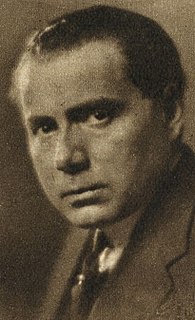 W
WErnst Lothar was a Moravian-Austrian writer, theatre director/manager and producer.
 W
WSimona Monyová was a Czech novelist. She wrote more than 20 books and was a bestselling author in the Czech Republic. On 3 August 2011 she was found dead in her house. The police suspected her husband, Boris Ingr, was the murderer, as there was a history of domestic abuse. He was later convicted and sentenced to 15 years in prison. The sentence was upheld by the Supreme Court in 2013.
 W
WMartin Potůček is Czech university professor, public policy analyst, journalist. He studied the teleonomic qualities of differentiated social actors, processes of cultivating and utilising human potential, and factors influencing health and health policy. His research concentrates on the processes of public policy formulation and implementation in the Czech Republic. He published 23 scientific books and three textbooks.
 W
WSylvie Richterová is a Czech educator and writer living in Italy.
 W
WZdeněk Rotrekl was a Czech and Czechoslovak Catholic poet, literary historian and writer. He was severely persecuted for his work and Roman Catholic beliefs during Czechoslovakia's Communist era from 1948 to 1989, including thirteen years in prison. The Communist government also banned his work for more than forty years. The Prague Daily Monitor has called him "one of the most distinguished personalities of the Catholic stream in Czech poetry of the latter half of the 20th century."
 W
WRichard (von) Schaukal was a Moravia-born Austrian poet.
 W
WOndřej Sekora was a Czech painter, illustrator, writer, journalist and entomologist. He is known mainly as an author of children books. Sekora was also one of the first propagators of rugby in Czechoslovakia.
 W
WPeter Sís is a Czech-born American illustrator and writer of children's books. As a cartoonist his editorial illustrations have appeared in Time, Newsweek, Esquire, and The Atlantic Monthly. For his "lasting contribution" as a children's illustrator he received the Hans Christian Andersen Medal in 2012.
 W
WKateřina Tučková is a Czech novelist and curator. She is best known as the author of Žítkovské bohyně, a Czech bestseller translated into 16 languages.
 W
WMilan Uhde is a Czech playwright and politician. He is a member of the Civic Democratic Party.
 W
WMiroslav Verner is a Czech egyptologist, who specializes in the history and archaeology of Ancient Egypt of the Old Kingdom and especially of the Fifth Dynasty of Egypt.
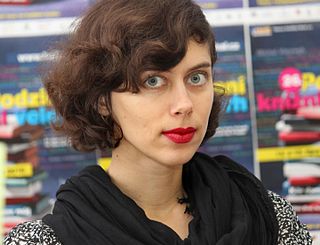 W
WSára Vybíralová is a Czech writer, translator from French, and editor.
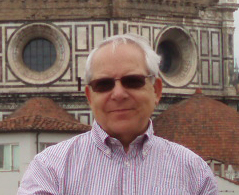 W
WPetr Weigl was a Czech director and playwright.
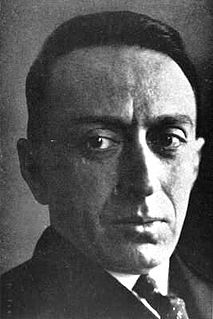 W
WDr Ernst Weiss was a German-speaking Austrian author of Jewish descent. He is the author of Ich, der Augenzeuge, a novel dealing with the Hitler period.